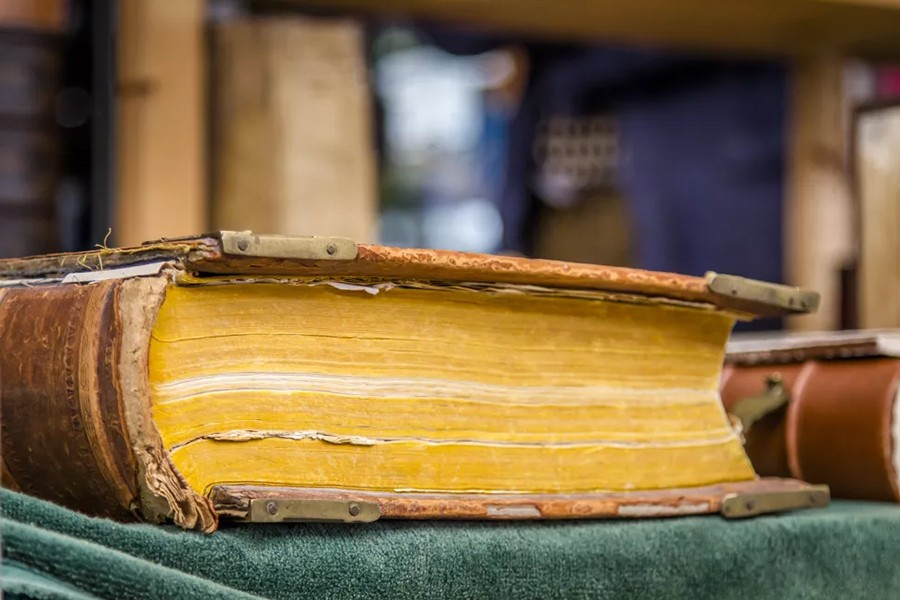Did you ever notice the pages of old books getting yellowish over time? Those who have a collection of books are familiar with this phenomenon.
Well, don’t be afraid if you come across this for the first time. There is nothing creepy but pure science. The paper's ingredients, when come in touch with Oxygen, turn yellow over time.
Paper is made from wood, which naturally comprises cellulose and lignin that make wood robust and stiff. Cellulose, being a colourless element, is pretty reasonable at echoing light, which makes these papers white. As for lignin, a polymer, when exposed to air and light, its molecular structure changes.
Lignin is vulnerable to oxidation as it contains alcohol. Thus it takes extra molecules that stimulate the alteration in the polymer structure.
The added oxygen molecules break the bonds that hold those alcohol subunits concurrently, developing chromophores, a Greek word that means colour. Chromophores make it a bit yellowish or brown.
Newsprint paper that is prepared in a more inexpensive way turns yellowish even faster. The reason? It got additional lignin than refined paper.
Preventing air and light, and your books are safe
Although you might not avert your book’s pages from being yellow forever, with proper care, you can keep them intact for a long time, even, maybe for a lifetime!
Someone surely caught your sight by busking books under sunlight to prevent growing bacteria through them. Sorry to break the myth for you.
Your book hates sun rays so stop torturing them by keeping them under the sun. The Ultraviolet radiation from sunlight is way too hazardous for books to turn yellow faster than usual.
So the first rule is to keep your books in a place where no light usually reach. A bookshelf or a drawer could be your solution.
Again, the bookshelf you are using should prevent air as well because both air and light contribute to making them yellow.
Fluctuation in temperature is another reason for this yellow tragedy of your favourite books. Never settle your books in an air-conditioned room. Try to keep them in a cold yet dry room where the temperature is consistent.
Books that have already turned yellowish must be kept separately from the intact ones. This one is the least of your concern but is a useful strategy to follow.
On the other hand, the shelves can radiate perilous moisture that can help your books turn yellow, even after all the care. Use a piece of clothing, preferably made of cotton, which will absorb the moisture.
You don’t necessarily have to trash your books that have turned a bit yellowish. However, by being careful and following some strategies, you can easily avert the consequences.
The writer is a third-year student pursuing her BBA in Tourism and Hospitality Management at the University of Dhaka.


